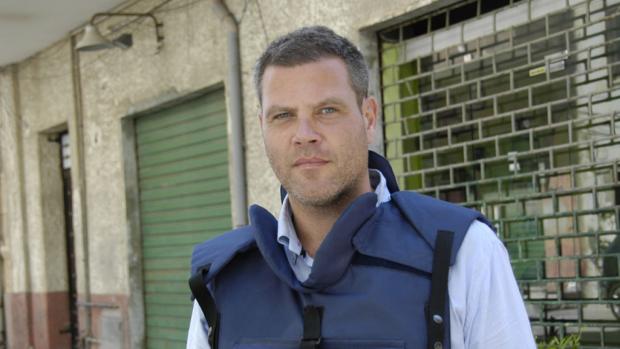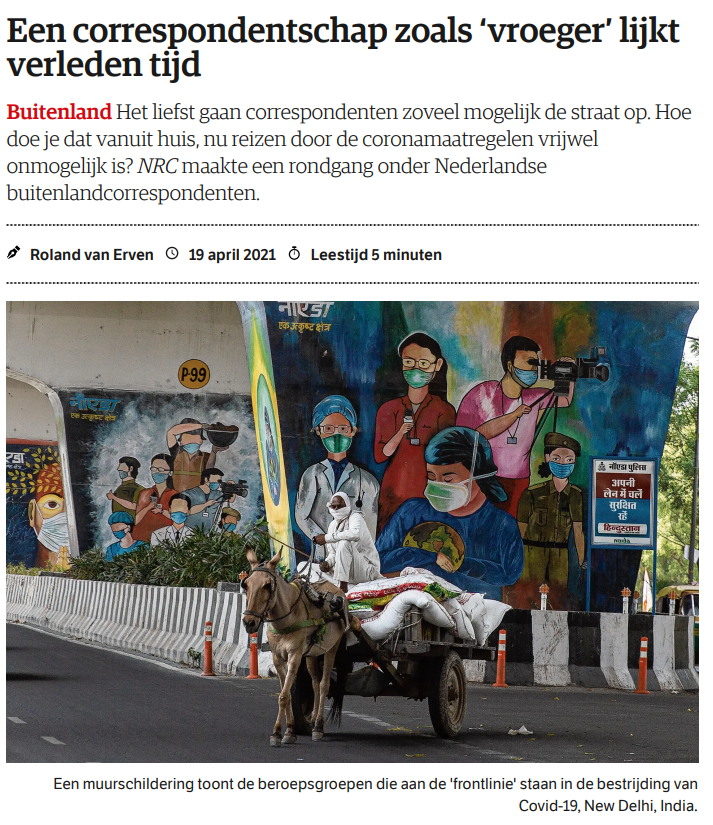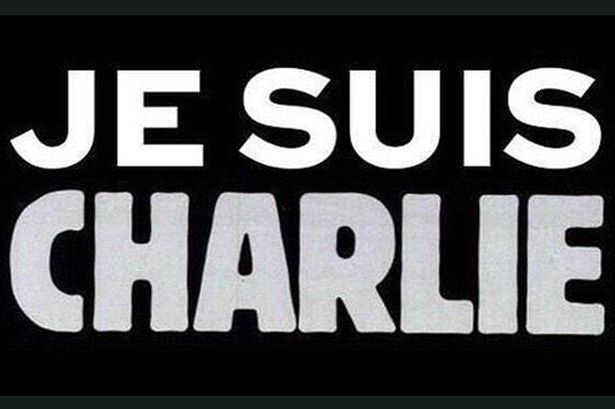Waar professionele journalisten zich niet wagen
Wie zich nu in Syrië waagt als journalist, moet op zijn of haar passen letten. Naast gericht geweld op buitenlandse verslaggevers en fotografen, is de kans op ontvoering extreem groot.
Volgens het Committee to Protect Journalists worden op dit moment zeker 18 journalisten vermist, waaronder James Foley. Voor (Westerse) journalisten is Syrië inmiddels te gevaarlijk om er langer dan een paar dagen te blijven. Daarom zijn nieuwsmedia steeds meer afhankelijk van lokale bronnen.
These days, most foreign journalists do only short stints inside Syria—“get in under the radar, get what you need, and get the fuck out before you get kidnapped” is how one photographer put it.
New Republic maakte een indrukwekkend portret van deze nieuwssmokkelaars.
In the absence of professionals on the ground, many outlets have been forced to lean heavily on the reports of untrained citizen journalists. The BBC regularly runs photos from activists, as do the Associated Press, Reuters, The New York Times, and CNN. These outlets attempt to evaluate the accuracy of the reports—in Antakya, for instance, Al Jazeera correspondent Anita McNaught assesses amateur video recordings with two Arabic-speaking researchers—or else hedge their veracity.
Maar die afhankelijkheid van lokale nieuwsbronnen betekent ook minder betrouwbaarheid van informatie. De strijdende partijen in Syrië hebben er baat bij dat hun versie van de waarheid het publiek bereikt – desnoods met intimidatie van de nieuwssmokkelaars. Het artikel in New Republic beschrijft hoe met deze – soms niet zuivere – informatie om gegaan wordt.
The Syrian media landscape has become a proxy battle for forces throughout the Middle East, just like the conflict itself. In the Turkish border area, there are independent organizations like the one Wassim works for, there are FSA-aligned outlets, and there are deep-pocketed operations backed by foreign interests—all flooding YouTube and Facebook with competing versions of the uprising. “I learned very early on not to immediately trust everything I heard,” said McNaught. “For me, it’s about getting a feel for who is reliable—sussing out who the real bullshitters are. And it’s about constantly cross-referencing. OK, this person tells you this. Well, let’s talk to five other people, and see what facts they have in common, and when you’ve got an overlap, maybe you’ve got something.”
Lees het uitgebreide artikel van New Republic ‘On the Ground With Syria’s News Smugglers
They go where professional journalists won’t‘.





